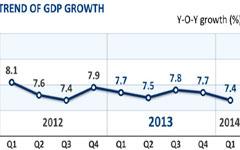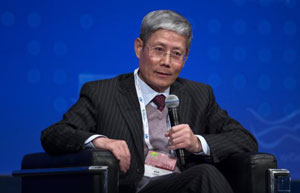China working more closely with foreign think tanks
By He Dan (China Daily) Updated: 2014-04-28 07:16Foreign think tanks are becoming more actively involved in China's reform and development, analysts said.
"Both the Chinese government and domestic companies have had increasing interaction with foreign think tanks in the past few years, and such communication will become more frequent and in-depth in the future," said Xu Hongcai, director of the Information Department of the China Center for International Economic Exchanges.
 |
 |
In 2008, RAND won a contract with the Tianjin Binhai New Area through its unique methodology, said Overholt, who is now president of the Fung Global Institute, a Hong Kong-based think tank.
"In this case the methodology was a technological foresight technique that the leaders of TBNA thought would be uniquely valuable in helping them to decide what technologies to emphasize as they built the new development zone," he said.
"Sometimes, a similar situation occurred with an earlier project analyzing family structures. RAND had a method that had been used in many other countries. By comparing the Chinese results with other countries, the data would be particularly valuable," he said, adding that in this case, RAND also hired scholars from Peking University to conduct research that ensured it served Chinese interests to the maximum extent possible.
Foreign think tanks can even contribute to the decision-making process surrounding national policy, said Zhu Xufeng, a professor specializing in think tank studies from the School of Public Policy and Management under Tsinghua University.
The New Rural Cooperative Medical System that the central government introduced in 2003 drew massive experience from research or pilot projects that involved foreign think tanks, including RAND, he said.
- Singapore retains top yuan offshore clearing center outside HK
- Overcapacity, slowdown bring steel industry losses
- S China footwear factory resumes production
- Brunei, China sign carbon steel pipe project
- Third party mobile payment thrives
- Alibaba takes youku stake
- Time to focus on growth quality, IMF says
- Cloud computing brings revenue to western region
















